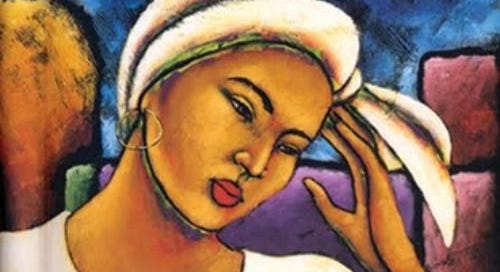Fear, white Christianity, and a scarcity mindset concoct glimpses of what we see today, a country operating as anti-equitable. Today’s final part of the equitable abundance series will take a closer look into how this harmful trifecta disrupts the natural desire for true harmony within our communities. We will explore how we, as readers, thinkers, & active agents, can confidently identify and call out such disruptive practices in our country—blending from influential Authors such as James Baldwin, Johnathan Metzl, and W.E.B. Du Bois, while actively rejecting the image of a human-made capitalist, xeno/homophobic, misogynist Jesus. We examine the question of “More for You, Less for Me?”.
Fear
It is the fear of not having enough (resources, power, etc.) that gives a two-fold response in this country. First, fear is an excellent marketing tool to yield power and justify harmful tactics. Second, found at the root of many injustices seen today, such as in Flint, police brutality, detention facilities, and more, is the fear of not having enough and thus withholding just actions.
White Christianity
If Christians believe that God is unchanging and powerful, then it must be our view of God that limits God’s full power to move. So if white Christians particularly feel their faith is threatened in today’s climate, then maybe their faith was not accurate from the beginning. The Gospel liberates all from the confines of unjust systems; yet, Christianity manipulates the Word to benefit the power-hungry majority. Such a challenge to this identity will remove false ideologies and practices. There needs to be a greater emphasis on understanding God’s image and an in-depth study of Biblical historical accounts of Jesus’ time on earth to form a truthful viewpoint.
A call for this understanding would require a current rejection of the present and reveal the need for a new identity. What would this identity look like for White Christians? Jesus, in the mainstream American view, is a white, Christian male, passive in His work, and Savior for one instead of Savior for all.
To boast about the victory of the Israelites from Egyptian bondage but fail to recognize the egregious acts of the Egyptians upon the Israelites is ironic. As God used Moses to free the Israelites, from the perspective of African-American enslavement, wouldn’t God also demand liberation and enact rightful judgment against the slaveholders? Or, are there two different Gods who decide who deserves freedom or not? If the same Jesus fled to Egypt with his family to avoid the impending execution of male children, found refuge in a country where their citizenship did not lie, why is there a dissonance amongst Christians with similar people groups seeking refuge today? Or, do we hold power to decide who is our neighbor or not?
Scarcity Mindset
In James Baldwin’s “Letter from a Region in My Mind”, the intersection of race, religion, and ethics notes the fragility of the foundation of which white Americans stabilize themselves. The increased push for the maintenance of white supremacy employs ideologies like religion and economics to propel their cause. In a provocative question, “why is it not also possible that they achieved their original dominance by stealth and cunning and bloodshed and in opposition to the will of Heaven, and not, as they claim, by Heaven’s will? And if this is so, then the sword they have used so long against others can now, without mercy, be used against them”, begs the question when is the tipping point of these grievances and when will final justice occur?
---
With all said, the question of “More for You, Less for Me?” cannot exist in an equitable abundant world. However, this question has served as the premise for what unfortunately happens today. In the continued work towards an anti- “ist” and equitable society, our call is for a place where exploitation and subjugation do not exist, and that shouldn’t be too hard to ask.



